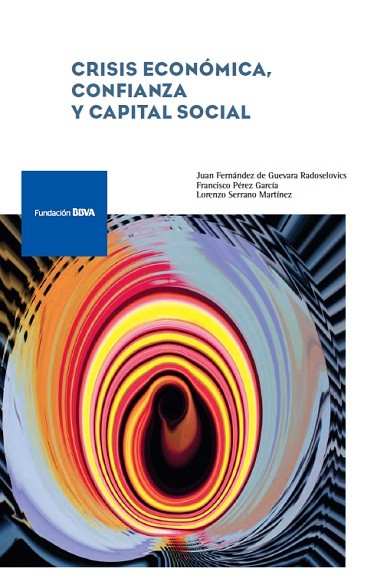
PublicationMonographs
Crisis económica, confianza y capital social
The economic crisis has represented a serious reversal for numerous countries and individuals that have seen their improvement paths cut short by economic losses and rising unemployment. In many cases the failure of expectations has undermined trust in institutions.
This study examines the effects of the crisis on various aspects of social capital, seen here as a multidimensional construct. On the one hand, it analyzes its economic side with a methodology developed by the authors, updating the Fundación BBVA-Ivie social capital series for the OECD countries plus, in Spain’s case, the autonomous regions and provinces. On the other, it considers civic participation, trust in people and institutions and the density of social networks, using Eurobarometer data to analyze changes in these social capital dimensions.
Among its conclusions is that economic outcomes affect many dimensions of social capital, including those to do with levels of activity and others such as trust in public institutions. Waning expectations of material improvement as a consequence of the crisis have harmed the reputation of public institutions and reduced people’s willingness to cooperate. By contrast, other dimensions like interpersonal trust, civic participation or social network density have held up more strongly.
This publication is the latest addition to the Fundación BBVA-Ivie research series on intangible assets and their role in economic development. Economists, sociologists, politologists and the general reader will find in it a rigorous analysis of less studied effects of the economic crisis that nonetheless offer valuable insights into its scope and the obstacles in the way of recovery.
